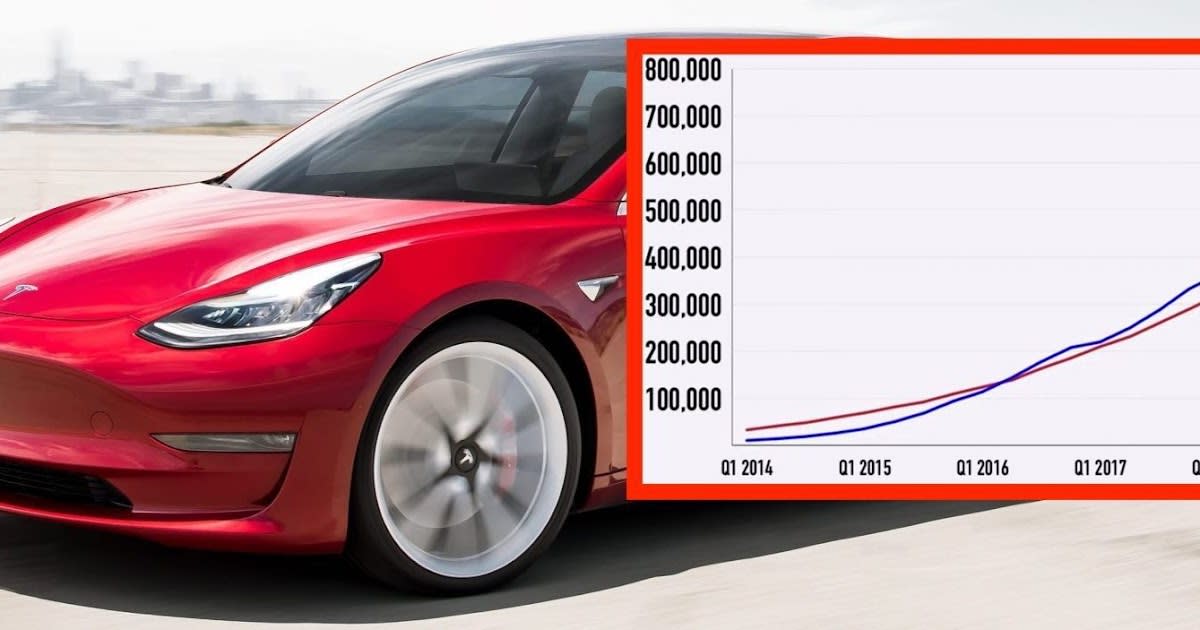Electric Vehicle Revolution Surges: Tesla Maintains Leadership, while Legacy Automakers Gain Ground
The global automotive industry is undergoing a transformative shift, with electric vehicles (EVs) taking center stage. The first quarter of 2023 witnessed remarkable growth in EV sales, with several industry giants making significant strides.

Tesla's Dominance Continues
Tesla, the undisputed leader in the EV market, maintained its dominance in Q1. The company delivered an impressive 310,048 vehicles, marking a 68% increase year-over-year. Tesla's Model 3 compact sedan and Model Y crossover SUV remained the best-selling EV models globally.

Legacy Automakers Gain Momentum
While Tesla continues to lead the way, legacy automakers are rapidly catching up. Toyota, Japan's largest automaker, saw its EV sales soar by 67% in Q1, reaching 31,826 units. Toyota's bZ4X SUV and Prius Prime plug-in hybrid led the charge for the company.
Chinese automaker BYD surged into second place globally, surpassing Toyota in EV sales. BYD delivered 177,804 EVs in Q1, an astonishing 234% increase compared to the same period last year. BYD's strength lies in its diverse product portfolio, which includes sedans, SUVs, and even commercial vehicles.
Rivian and GM Make Headway

American EV startups are also making waves in the industry. Rivian Automotive, known for its R1T pickup truck and R1S SUV, delivered 2,553 vehicles in Q1. While this may seem modest compared to Tesla or BYD, it represents a significant increase over the company's previous quarterly performance.
General Motors (GM) is also gaining traction in the EV space. The American automaker delivered 5,832 Chevrolet Bolt and GMC Hummer EVs in Q1, marking a 245% year-over-year jump. GM plans to roll out a slew of new EV models in the coming years, including the electric versions of the Chevrolet Silverado and GMC Sierra pickup trucks.
Hyundai and Honda Join the Race
South Korean automaker Hyundai and Japanese automaker Honda are also making their presence felt in the EV market. Hyundai's Ioniq 5 crossover and Kona Electric subcompact SUV have been well-received by consumers, while Honda's all-electric Honda e and upcoming Honda Prologue SUV are generating significant buzz.
Market Trends and Analysis
The surge in EV sales is driven by several factors, including government incentives, technological advancements, and growing consumer awareness about climate change. EV prices are also becoming more competitive, making them accessible to a broader range of buyers.
The rapid shift towards EVs is expected to continue in the coming years. Analysts predict that by 2030, EVs will account for over 50% of global car sales. Legacy automakers are investing heavily in EV development, while governments around the world are implementing policies to promote the adoption of EVs.
The transition to EVs also presents challenges. The availability of charging infrastructure and concerns over driving range remain key factors that influence consumer decisions. Automakers are addressing these issues by expanding charging networks and developing vehicles with longer driving ranges.
Furthermore, the global semiconductor shortage continues to disrupt the automotive industry, including EV production. Supply chain constraints are expected to ease in the coming months, but they could still pose a risk to EV sales in the short term.
The global automotive industry is undergoing a profound transformation, with EVs taking center stage. Tesla remains the undisputed leader, but legacy automakers and EV startups are rapidly catching up. The surge in EV sales is driven by a combination of government incentives, technological advancements, and growing consumer awareness about climate change.
As the EV market matures, new challenges and opportunities will emerge. Automakers will need to focus on expanding charging infrastructure, developing vehicles with longer driving ranges, and addressing supply chain issues. Governments will play a crucial role in promoting EV adoption through policies and incentives.
The future of automotive transportation is undoubtedly electric, and the industry is poised for continued growth and innovation in the years to come.
